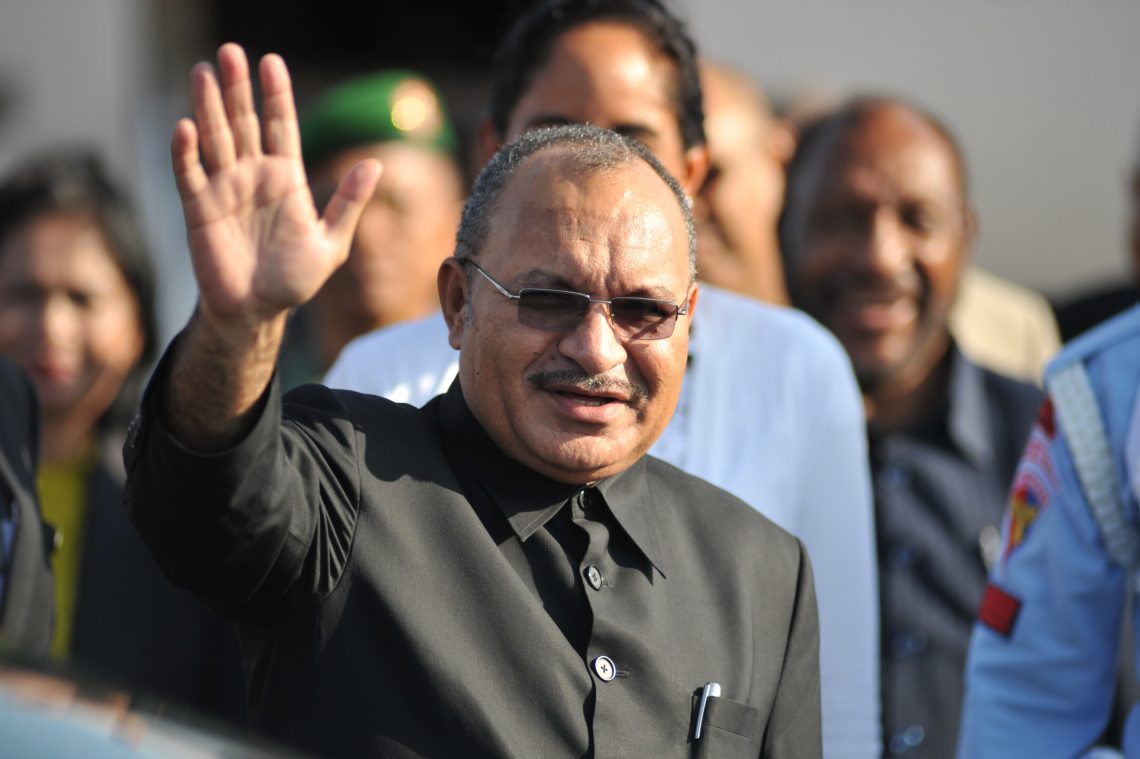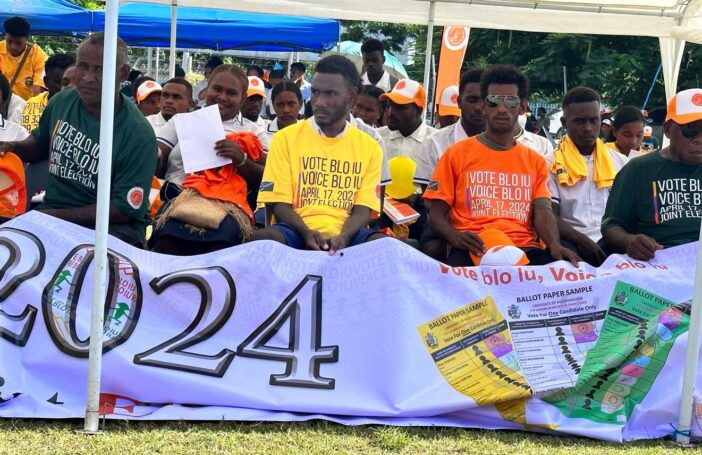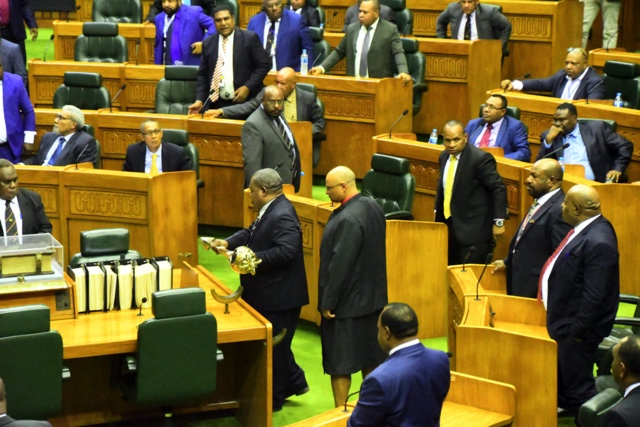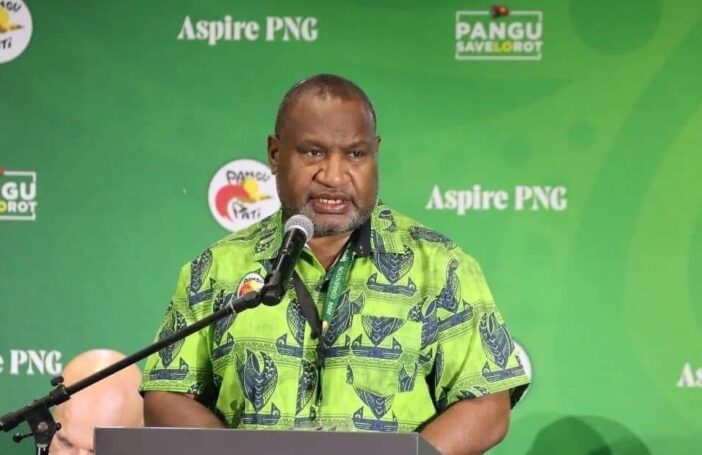Peter O’Neill was PNG’s second longest serving Prime Minister, and by a long way. He was PM from 2011 to 2019, about one-fifth of the country’s history as an independent country. He may well remain a political force, and even be a future PM. But for now at least his term of office is over. How should we assess it? Certainly, no other individual has so dominated the pages of the Devpolicy Blog, which I have co-edited since its inception in 2010. Indeed, the pages of our Blog provide a rich source of materials on which to base an assessment of O’Neill’s long tenure. In what follows, I focus on domestic policy, the importance of the 2013 O’Neill-Rudd Manus agreement notwithstanding.
On the positive side of the ledger, attempts had been made before Peter O’Neill became Prime Minister to abolish school fees in PNG, but none had lasted. O’Neill did it, and it stuck. One can criticise some of the modalities and consequences (in most provinces, a massive increase in school class sizes), but getting more kids in school is a step forward.
Free education stuck in part because O’Neill was PM for so long, and that stability was itself an achievement. It enabled O’Neill to pursue long-term goals like the hosting of APEC, which, while controversial, resulted in PNG getting more foreign aid. The stability also provided the environment in which the ADB’s 2017 US$1 billion loan to fix up the Highlands Highway was finalised – a transformational project.
The negative side of the ledger is prominent. First, O’Neill borrowed heavily during his first years of office, the boom years of 2012 to 2014. That was a big mistake, resulting in a heavy interest burden today, and accentuating the impact of the downturn on government services during the post-2014 bust years.
Second, and crucially in my view, O’Neill failed to grasp the opportunity which the end of 2014 presented. When oil prices crashed, he could have called the greatly changed external circumstances a crisis, and pushed through much-needed hard decisions, like budget cuts, revenue measures, and an currency devaluation. He could have done all this and blamed it on external necessity.
Instead, until much too late his government denied that the fall in oil prices would have any consequences at all. By then, the PM was trapped by his own spin into a passive economic policy stance, perpetually on the defensive, denying that there were any economic or other problems at all, even as employment fell, growth outside the resources sector fell below the population growth rate, foreign exchange dried up, revenue collapsed, and government services deteriorated. The admission of his successor – the new Prime Minister James Marape, in a maiden speech that was generally favourable to O’Neill – that the economy is “bleeding and struggling”, was never one the former PM could have made after he missed his 2014/15 window of opportunity. O’Neill’s defence of his healthcare policies at a time of health crisis was particularly galling.
Third, the former Prime Minister antagonised too many of his colleagues via a series of controversial decisions or captain’s calls. O’Neill could ban Australians like Ross Garnaut and Paul Flanagan with no fallout. He could nationalise Ok Tedi without consequence. But the 2014 UBS loan to purchase Oil Search shares cost him valuable allies, as did – much more recently – his finalisation, against bureaucratic advice, of the Papua LNG gas agreement. It is sometimes said that all power rests with the PM in PNG politics, but O’Neill’s eventual demise illustrates the dangers of concentrating rather than sharing power. (On his resignation as Minister in April, James Marape said that PNG was not a nation “to be dominated by one person”.)
O’Neill also struggled with many of the dilemmas that ruling PNG involves. The first and most prominent of these concerns corruption. Everyone agrees it needs to be contained, but when corruption is widespread clamping down on it is risky. O’Neill came in with energy at the end of Somare’s lethargic final term. He established Taskforce Sweep to fight corruption within two weeks of becoming PM, in August 2011. But it lasted less than three years, being disbanded by the man who set it up when the agency went after the O’Neill himself on corruption charges. He promised thereafter to replace Taskforce Sweep by an Independent Anti-Corruption Commission, but never did. While it is difficult to quantify corruption, the consensus is that it increased and institutions weakened under O’Neill’s reign.
Second, O’Neill supported decentralisation, but without clear direction. In his early years, he supported decentralisation to the districts or MP level, with multi-million Kina funds for MPs to disburse and new District Development Authorities to manage those funds. Provinces (made up of districts) seemed irrelevant. But in his later years, O’Neill tacked back to the provinces, promising their governors greater autonomy. Absent a settled and affordable framework for decentralised governance, expect service delivery to continue to decay.
Third, O’Neill – or at least his government – flirted with but never committed to a number of controversial policy stances. Policies to quarantine large parts of the economy from foreign investment and to hand mineral ownership to landowners were advanced, but then not implemented. There is a clear mood of economic nationalism in PNG which no leader can ignore, but it needs to be constructively channelled towards outlawing backroom deals rather than isolating the country. Women’s parliamentary representation is another issue the former Prime Minister flirted with but left in the too hard basket.
Peter O’Neill, by virtue of his longevity and energy, was probably PNG’s most powerful PM, but he was also perhaps the most divisive. A skilful politician, he appeared invincible for so long, but he finished his time as PM isolated and defeated by what even he admitted was a perceived “need for change”, his achievements insufficient to counter his mistakes and vacillations.






Prof. Howes is being very polite. Peter O’Neill was an unmitigated disaster. During his tenure, economic growth in the non-resource sector diminished each and every year, despite him bragging about the economy. At some point, it was uncertain whether the country could pay its fuel bill, and the supermarket ran out of vegetables.
In the country side it was much worse. In 2014, because of his misguided economic policies, and El Niño induced drought, there was a fully fledged famine in the highlands, and the World Food Program had to give food to 250,000 people. Meanwhile, judges, journalists, academics or professionals who called out corruption were continuously harassed, and if foreign simply kicked out of the country.
Since the stolen 2017 elections, SHP/Hela and Enga provinces have been suffering a civil war between various clans and tribes, a situation conveniently ignored.
Miraculously in May 2019 Parliamentary democracy worked and Peter O’Neill lost support for being too selfish and greedy dealing with the Chinese and resource companies. The new crew, is mostly the old crew, and equally clueless and callously ignoring the needs of the good people of PNG.
Thanks Stephen. The point on decentralisation is a key one – confusion around the direction in this area is the key determinant of a failure to convert core reforms (in PFM or in service sectors) and enhanced budgets into sustainable service improvements. It is also – besides resources – one of the main issues shaping the current transition. Perhaps the current energy and broad coalition can drive resolution of the key debates around districts and provinces – whatever the system chosen, successful decentralisation requires clarity above all else.
Thanks for the insights
Those are fair comments, both from an external point of view which looks at the overarching contributing factors which did force the PM to step down. The other reason the people of PNG saw and wanted their MPs to withdraw from supporting P. O’Neill’s government was systemic endemic corruption encouraged and allowed to take deeper roots in the upper class government bureaucratic and even higher up.
That trend caused massive disservice to the country. The projects for which the money was borrowed for never started. eg, Upgrading of Highlands Highway or any other road systems. Job creation is a direct result of investments to encourage economic activities in all sectors. That didn’t happen in PO time. The country is now in much worse economically much than it was when PO took over as PM for 8 years.
PO does not deserve being credited as the longest serving PM of PNG for his sound economic policy and management and good governance, but his longer term as PM was due to him encouraging, participating and rooting corruption at high decision making places which is affecting the country now.
Great analysis Stephen. I was an O’Neill supporter in his early years. His vision for PNG and early action orientation (such as Taskforce Sweep) really lifted PNG. Implementation and teamwork were key problems. My experience was that he was too ready to listen to convenient but ultimately bad advice – some of it from foreign advisors. As you indicate, he missed making the fall in oil prices an opportunity from adversity to embrace needed policy changes – his current legacy could have been so different. Even on the positive side of the ledger mentioned above, I have some doubts. On tuition-fee free (TTF) education, the K600 million almost certainly could have been better spent in strengthening the training and numbers of teachers, improving education facilities and introducing targeted scholarships. If the measure of TTF success is lifting school enrolments, there are serious doubts whether the policy had any impact on previous trends. Specifically, student enrolments were increasing at some 100,000 per annum from 2004 to 2011. After an initial positive response in 2012, with reports indicating a particularly positive impact for female enrolments, it seems student growth has slowed relative to the pre-TTF period of 2008 to 2010 (figures from PNG’s 2015-2019 National Education Plan page 19 Figure 2). For K600 million, probably an education policy failure and just an indirect cash payment to parents. On boosts in aid funding from APEC and from political stability, we probably need more time to tell. There will also be great difficulties in separating any “O’Neill” impact from the broader trends of Western countries increasing financing levels due to concerns about China’s growing influence in the region and the ADB’s general massive step-up in assistance to the Pacific region. Thanks again for a timely and insightful reflection. And of course, Peter O’Neill is still the leader of the PNC which is the largest coalition partner in the new Marape Government – so Devpol’s blogs may still have much more to say about Peter O’Neill! I think there is some wisdom in the view that previous Prime Ministers should not remain in Parliament (whether in PNG or Australia).